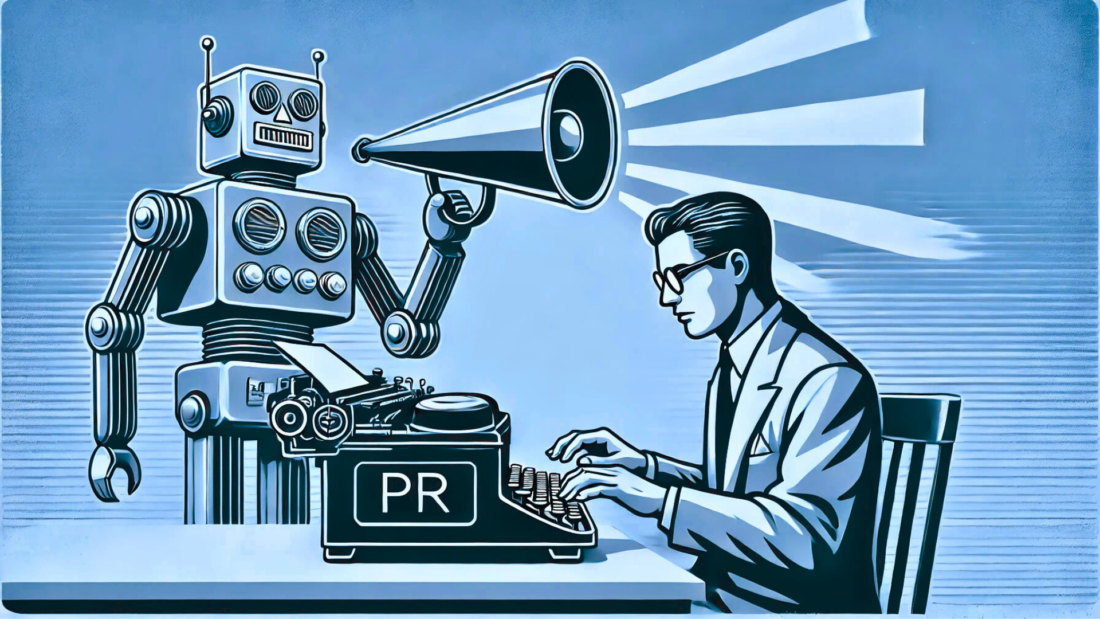AI is amplifying your brand story—but it’s PR that determines what story gets told
In the era of ChatGPT, Claude, Bard, and whatever next-gen AI pops up tomorrow, one thing is crystal clear: if you’re not controlling your narrative, a bot is.
And that bot? It doesn’t care about nuance, brand voice, or your latest breakthrough. It scrapes the internet, stitches together what it finds, and spits out a version of your story—right or wrong.
This shift is happening now. A staggering 61% of Gen Z and 53% of millennials are turning to AI tools instead of Google to find information, according to Vox Media. And for the first time since 2015, Google’s global search market share fell below 90% in late 2024, according to StatCounter. Why? Because 42% of people say Google Search is becoming less useful, and 66% believe the quality of results is declining, making it harder to find reliable sources, per the same Vox Media survey.
Generative AI isn’t just reshaping how people search. It’s reshaping how people think about your company. Buyers, journalists, investors, and acquirers are asking AI for answers before they ever land on your website. That makes PR more than just a nice-to-have—it’s the frontline of influence in an algorithm-driven world.
Here are seven ways PR directly influences AI—and why every company needs to care:
1. PR Feeds the Algorithms
AI models like ChatGPT are trained on the internet. Press coverage, blogs, analyst reports, and thought leadership pieces become training data. The more quality content about your brand that’s out there, the more likely AI is to describe you accurately—and favorably.
2. It Shapes What AI Says About You
When someone asks an AI tool to recommend the best solution in your industry, what does it say? PR shapes the digital footprint that AI pulls from. Without consistent messaging in high-authority sources, you risk being misrepresented—or left out entirely.
3. PR Improves AI Discoverability
Just like SEO, strategic PR improves how often and where your company shows up in AI-generated answers. It helps AI tools connect your brand to key categories, terms, and competitive advantages—ensuring you’re part of the conversation when it matters.
4. It Counters AI Hallucinations
AI isn’t perfect. It can confuse companies with similar names, make up product details, or misattribute quotes. It even sometimes makes things up out of thin air. PR reduces these risks by ensuring correct, up-to-date information is easily accessible online and across trusted sources.
5. PR Builds the Authority AI Seeks
AI systems weigh credibility when choosing sources to reference. Coverage in reputable publications and original content from recognized experts positions your company as a go-to authority—not just for people, but for machines.
6. It Future-Proofs Your Brand Narrative
If you’re not maintaining a clear, proactive narrative, your story will be scraped together from outdated websites, random mentions, or even competitor copycats. PR puts you in control—so AI reflects your message, not someone else’s.
7. PR Influences Buying Decisions—Via AI
B2B and B2C buyers are already using ChatGPT for product research and recommendations. If your company isn’t visible in those responses, you’re not just missing out on PR wins—you’re missing out on revenue. PR ensures your company makes the shortlist.
In a world where bots summarize your company before a human ever visits your website, PR is no longer optional. It’s essential.
–
At GMG, we help brands rise above the noise with PR strategies built for the AI age—boosting your visibility, credibility, and influence where it matters most: in the minds of people and the algorithms that shape their decisions.
Schedule a free consultation today. Let’s make sure the next time someone asks ChatGPT about your company, it gives the right answer.


Why Cutting PR in Tough Times is a Costly Mistake (And What to Do Instead)